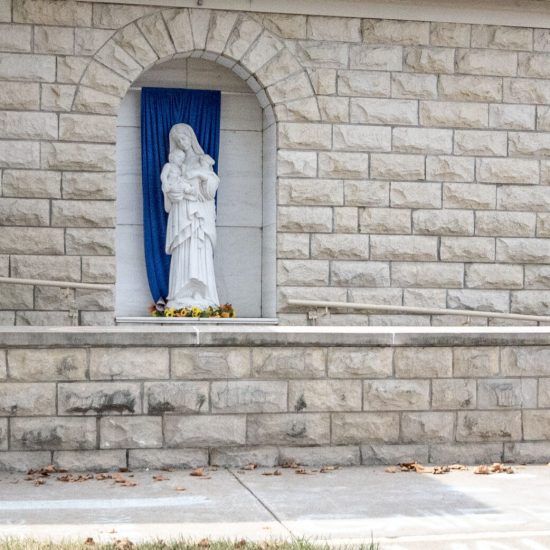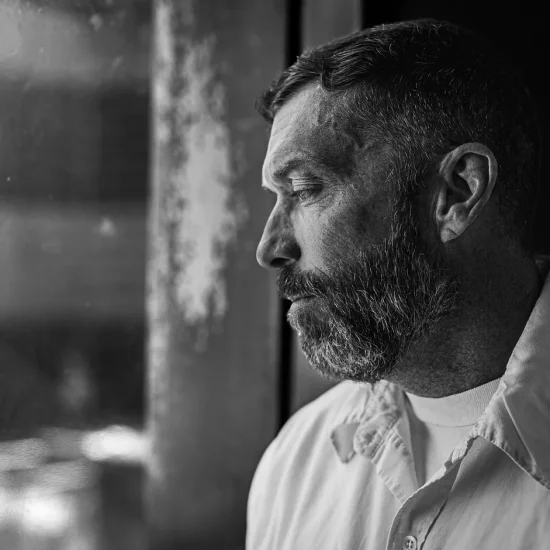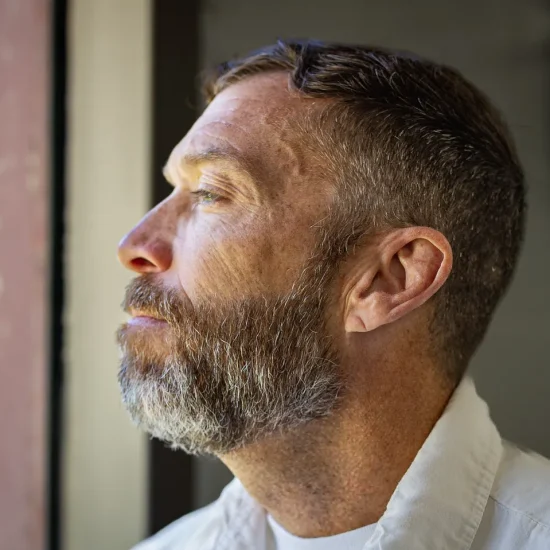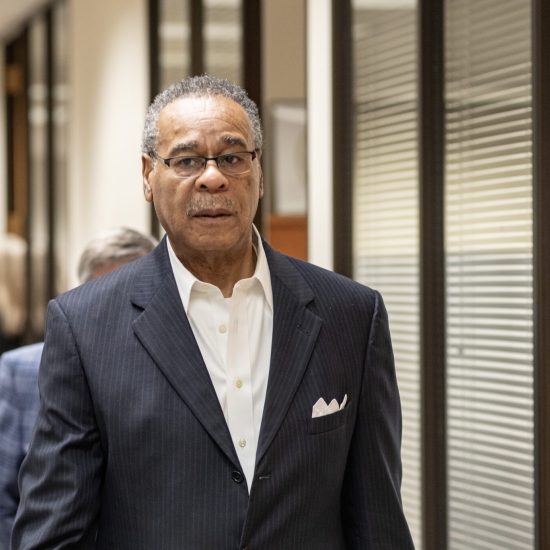By Jennifer Harris
Word&Way News Writer
Four Missouri marathoners all say the endurance sport provides an avenue for deepening their faith, giving them time to focus on God and helping them enhance other areas of life.
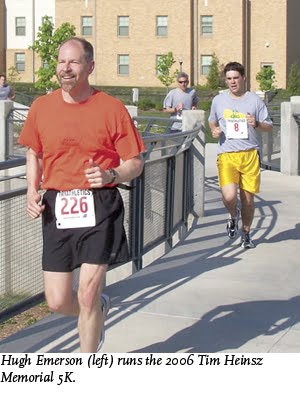 One of them, Hugh Emerson, member of First Baptist Church, Columbia, pulled on his shoes to meet his Tuesday/Thursday Running Group before dawn. The group, which hosted 158 early morning runners on its record attendance day, allows members of different pace groups and abilities to gather and run for an hour during its twice-weekly gatherings.
One of them, Hugh Emerson, member of First Baptist Church, Columbia, pulled on his shoes to meet his Tuesday/Thursday Running Group before dawn. The group, which hosted 158 early morning runners on its record attendance day, allows members of different pace groups and abilities to gather and run for an hour during its twice-weekly gatherings.
“Everyone is supportive of each other,” Emerson said. “We inspire each other.”
Of course, the group meeting is just one aspect of training for Emerson, who logs around 50 miles each week.
Training for the 26.2 mile marathon distance requires a high level of discipline partnered with an awareness of how the body works, which may be one reason Chris Cook, pastor of Parkade Baptist Church, Columbia, has often heard that runners tend to be more spiritual.
Cook, who has run the Heart of America Marathon in Columbia for the last 11 years — including a win in 2006 — uses his time running as an opportunity to pray for others and plan his weekly sermons.
Randy Buffington, minister of music at First Baptist Church, Lee’s Summit, helped inspire friend Rod Maples, worship pastor at First Baptist Church, Jefferson City, to train for his first marathon. Both men find themselves singing hymns or other songs of faith during their long runs, which build to over 20 miles before race day.
Maples “runs” through the hymnal, trying to recall as many stanzas of each hymn as he can, as well as identifying its number in the Baptist Hymnal. “It is somewhat of a game or mental exercise,” he said.
Buffington finds singing hymns of faith, particularly hymns with a “beat,” help him work through pain. “Sometimes even my hair hurts,” he said.
Emerson found himself thinking through hymns during the recent Boston Marathon. The race begins on a long downhill slope, which tempts runners to start too fast. Thinking through hymns, particularly “There’s Within My Heart a Melody,” helped him calm himself.
Why they run
Each man began running for a different reason.
Cook began running cross country and track in junior high school. He discovered he was good at endurance events and continued to run throughout college for William Jewell. He took a break from running while in seminary.
Genetics kicked in and affected his blood pressure. His doctor gave him an ultimatum: either go on blood pressure medicine for the rest of his life or begin running again. Cook chose to run. “My health picked back up,” he said. “I want to continue running till the day I die.”
Maples had rarely run farther than six miles before deciding to train for his first marathon in 2007. “It was something I always wanted to do -someday,” he said.
“The training was really hard,” Maples said. Keeping up with the training schedule required him to run in the snow and cold. “I was afraid not to run — I didn’t want to die in the middle of the race!”
Maples’ training paid off. He not only survived, his time qualified him to run the Boston Marathon in April.
Emerson and Buffington began running for weight management. “I was about 50 to 60 pounds overweight,” Buffington said. He began running on a treadmill and lost 40-50 pounds in three months. He experienced other health benefits from running and kept at it.
Emerson began running after college to keep his weight down. He was given a pair of running shoes as a present and felt obligated to use them.
Fellowship
All four men agree something spiritual happens when their shoes hit the pavement.
“Running is like church,” said Emerson. He referenced his church covenant, which begins “Because we have responded to Christ’s call to follow him as disciples and because we find this calling too difficult and too important to fulfill alone…”
“Running is something to do together, something too important to do alone,” he said. Both running and church provide community, inspiration, accountability, support and sharing.”
Buffington has involved his church in his running journey. He has encouraged others to join him at local 5k (five kilometers — about three miles) races. Thirty to 40 people joined him at the last race, and he is aiming to get 100 people involved.
“It has really opened the door of my ministry to those not in choir,” he said. “It’s a door that wouldn’t have been opened if I had stayed in my sedentary lifestyle.”
Cook prefers running alone. For him, running is part of his Hebraic view of life. The Hebrews had an integrated view, where the body is used for God’s glory, Cook said. “God has given us not only spirit and soul, but body,” he said. “We ought to be holistic — God is just as concerned with the inside of our heart as He is with our bodies.”
Maples enjoys the quiet time he experiences while running. He stopped wearing headphones after learning race regulations prohibited them during official events. Now, headphones seem to add clutter to an otherwise peaceful experience.
Instead of listening to music, he prays. “Some days I totally blank and it doesn’t happen,” he admitted.
Specifically, he prays for those who are not physically able to get out of bed, “because I can’t imagine what that would be like…. I pray for God to help renew their minds,” he said. “I pray for them almost every time I run. If not, I must be hurting bad.”
He enjoys the time away from the distractions of the phone. “The isolation frees me,” he said. “It allows me to think through problems and ways to work things out.”
Discipline
The discipline of running helps in other areas.
“When I run regularly and with purpose, other areas follow suit,” Maples said, noting his quiet times and eating habits improve when he is running. “They aren’t perfect, but it affects the way I think — if I have time to do this, I have time for that.”
Buffington said running helped him become disciplined. “I’m known as a goofy guy,” he said. In college, “no one believed I would reach graduation or actually be able to sustain myself…. So it surprised people when I began a sport that requires extremely high discipline.”
“I was taught that anything worthwhile is worth working for,” Buffington said. “Things that come easy tend not to be appreciated as much.”
Despite success on the course, training is never complete.
“Running is never done — much like working in a church,” Maples said. “You can’t just coast. No matter what you did yesterday, you have to do it again tomorrow.”
“Paul says we must finish the course and fight the good fight,” he said.
Both he and Buffington are finding that they are providing encouragement to run unintentionally.
“If Randy Buffington can do it (run a marathon), anyone can,” Buffington said.
Maples said he feels sort of like an everyman. “People see me and realize that ‘if he can do that — as a nonathlete — I can,’” he said.
For information on how to begin a running program, see the May 15 print edition of Word&Way.

